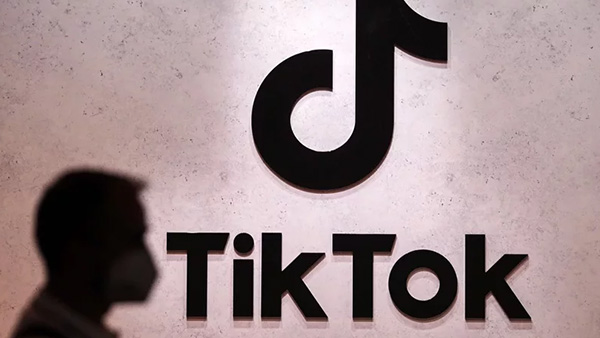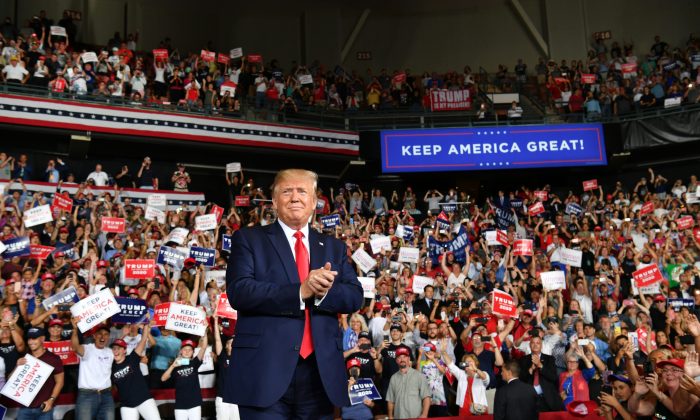미국의 초당파 싱크탱크 퓨리서치센터가 실시한 설문조사에서 공화당 지지하는 보수 유권자 43%가 대통령 권한 확대에 찬성하는 것으로 나타났다. 2016년 오바마 정권 당시 같은 설문조사에서 ‘찬성한다’는 응답이 14%에 그친것과 대조적이다. 또한 전체 응답자 중 대통령 권한 확대에 대해 ‘우려된다’고 답한 경우는 66%로 지난해보다 10% 포인트 줄었다.
트럼프 대통령이 의회와 합의하는 과정에서 어려움을 겪는 것을 본 보수층 사이에서 의회·법원으로부터 대통령의 독립성을 높여주자는 인식이 높아진 것으로 퓨리서치센터는 분석했다.
Conservative Republicans are rapidly abandoning their long-held suspicion of imperial presidencies in favor of giving the chief executive more power to get things done without having to worry about getting congressional approval, according to a Pew Research Center survey.
“The share of conservative Republicans who say that presidents could deal with problems more effectively if they ‘didn’t have to worry so much about Congress or the courts’ has doubled since March 2018. Today, about half of conservative Republicans (52 percent) hold this view, compared with 26 percent a year ago,” Pew said in a statement accompanying release of the survey’s results.
For Republicans overall and Republican leaning respondents, 51 percent would oppose more presidential power, compared to 43 percent who would favor it.
The increase in conservative GOP support for increased presidential power may reflect respondent’s frustration with President Donald Trump’s difficulties since taking office in January 2017 in getting agreement from Congress on much of his agenda.
Republicans controlled both houses of Congress in 2017 and 2018, but Democrats regained power in the lower chamber in the 2018 election.
By contrast, when Pew asked the same question of Republicans in August 2016 when Barack Obama was in the Oval Office, a much higher percentage (82 percent) of the respondents opposed the idea of greater independent executive authority and only 14 percent favored it.
“Democrats’ views are virtually unchanged over the past year: Currently, 82 percent say it would be too risky to give presidents more power, while just 16 percent say presidents could be more effective with less concern over Congress and the courts,” Pew said.
Democrats’ views in August 2016 were similarly different, with 66 percent being opposed to more presidential power and 29 percent being comfortable with it.
The Pew survey was conducted via telephone July 10-15 among 1,502 respondents, all of whom were at least 18 years of age and representing all 50 states and the District of Columbia. The margin of error is plus or minus three percent.
People 50 years of age or younger were significantly more likely to worry about enhanced presidential powers than those over 50, with 74 percent versus 58 percent.
Overall, Pew found that 66 percent of the respondents think increased presidential power would be worrisome, compared to 29 percent who would favor such a development.
The 66 percent figure was down 10 points compared to the results when the same question was asked in March 2018, which may reflect the surge in conservative support for making presidents more independent of Congress and the courts.
The Pew survey also uncovered some surprises regarding the public approval of Congress, with 36 percent having a favorable opinion, compared with 30 percent in March 2018.
Regarding the two major political parties, “Americans now have identical opinions about the Republican and Democratic parties: 45 percent view each party favorably.
“These views have changed little since January, but Democrats held a 10-point edge over the GOP in public perception last September (53 percent to 43 percent).”
Pew pointed to a Summer 2019 Harvard Law Bulletin (HLB). Quoting a Harvard Law professor, the HLB noted “though his approach is decidedly unconventional, Trump is far from alone among presidents in his desire and efforts to exercise greater control over events.
“‘Most presidents try to incrementally, and Trump has tried to do it non-incrementally,’ says Professor Noah Feldman. At the same time, an array of formal and informal checks, developed over time, have curbed some presidential efforts.”
The HLB added that “the three most recent presidents … used lessons from the past as blueprints to expand their capacities.





![트럼프를 ‘악당’으로 만들다…악의적 프레임의 수혜자는 누구? [ATL]](https://kr.theepochtimes.com/assets/uploads/2024/04/rrrr-235x132.jpg)
